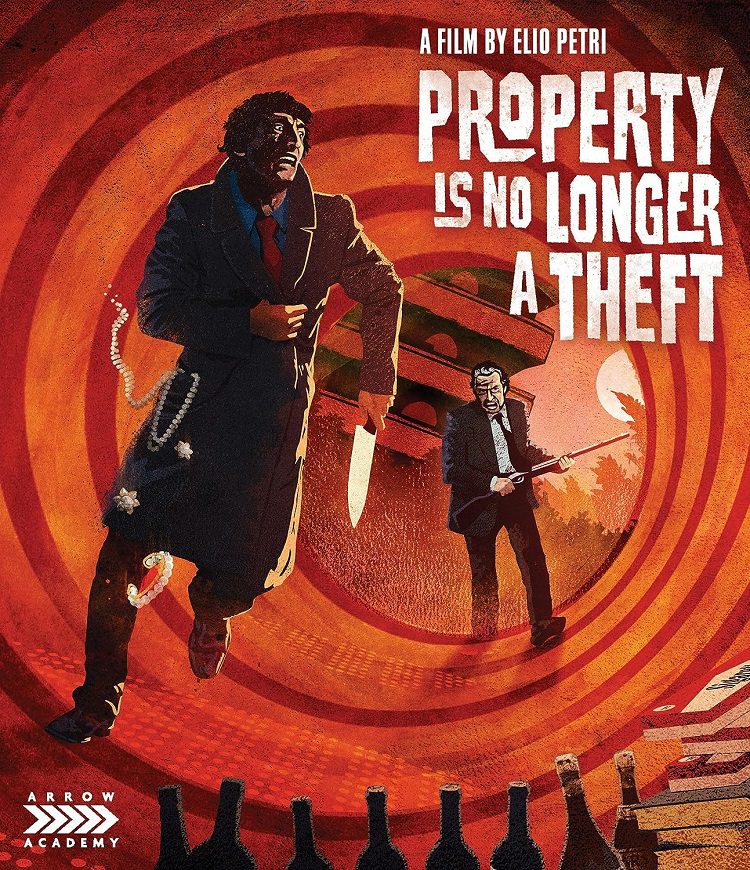
Elio Petri’s 1973 film Property is No Longer a Theft is a political film (barely) disguised as a comedic thriller. Its messaging is so heavy-handed it nearly pummels you with ideology while neglecting to tell an interesting story.
Total (Flavio Bucci) is a bank clerk who is (and the symbolism will escape no one) literally allergic to money – he has to wear gloves and is constantly scratching himself. Though he sees customers, such as the rich butcher (Ugo Tognazzi), come into the bank every day with loads of cash, he, himself, has none. Obsessed with the idea that property (and the ownership there of) is the disease of capitalist society (the title of the film is a play on the anarchist idea that property is theft), he sets about trying to bring the system down.
He begins stealing items of personal worth to the butcher – his cutting knife, his fancy hat, his car, and his mistress (strikingly portrayed by Daria Nicolodi). While this does anger the butcher, it also enriches him as he can use the break-ins to do a little insurance fraud, getting even more money for expensive items he declares were stolen.
As time passes, Total becomes more and more entrenched in his schemes to bring down the capitalist butcher, slipping further and further into madness. Nothing really works. The system is too far gone. Capitalism corrupts every thing and save for a complete destruction, society cannot be changed.
Petri is not the least bit subtle with his ideology and the film suffers for it. At times, he literally has his characters stare at the screen and tell their point of view. Property is No Longer a Theft is the third in what has been dubbed Petri’s Neurosis Trilogy (the other two being Investigation of a Citizen Above Suspicion and The Working Class Goes to Heaven). I’ve not seen either of those earlier films but at least Citizen gets a good deal of critical praise.
Petri is obviously a fine filmmaker and in terms of directing, pacing, and acting, Property is quite good. The sets, especially the butcher’s home, are filled with some really interesting spaces and Petri films them with a unique visual style. The acting is quite good as well, with the stand out being Bucci who makes Total into a strange character full of physical ticks and psychological flair. It’s just the message that’s a bit overbearing. I’m on board with some of his philosophy and in these post-housing-bust, Trumpian years, it’s a message as relevant as ever. But I’m of a view that film ought to be able to stand on its own merits, and political messages ought to be secondary.
Arrow Academy has done a fine job with the video presentation. It has a very nice, organic presentation with good details and fine colors and blacks. There are a lot of dark moments in the film but I didn’t notice any moments of deficiencies. The audio is good as well. The dialogue is clear (though it’s in Italian so I can’t say I actually understood anything) and Ennio Moriccone’s unusual score comes in loud and crisp.
The Blu-ray comes with three 20 minute-ish interviews with producer Claudio Mancino, make-up artist Pierantonio Mecacci, and Flavio Bucci. Plus, there is the usual insert booklet with some nice color photos from the film and a good essay.
Property is No Longer a Theft has enough in it to make me want to see other films by Elio Petri, but its heavy-handed messaging keep me from recommending it too strongly. Arrow does their usual fine job of bringing it Blu-ray. so for fans this is a nice addition to the collection.